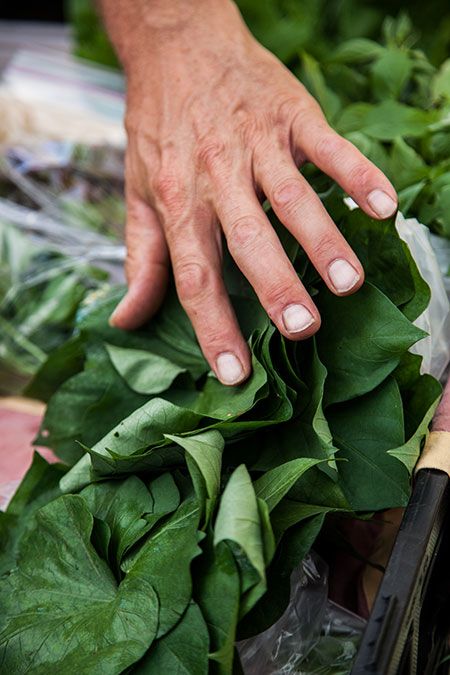Our program empowers children and adults to grow their own healthy food, and we could not do this without the wisdom, insights, and best practices that farmers have gathered over time. Farmers inspire us as we endeavor to teach and motivate others to garden at home, school, or in their community. Though we may be growing food on a smaller scale, we can use similar techniques that family farmers have perfected over time and can reap similar benefits.
While family farming was once the backbone of America, today, large-scale industrial farms receive far more attention and support from the government than small and mid-sized farms. However, the UN designated 2014 as the International Year of Family Farming to celebrate the world's more than 400 million family farmers. Our wish is that the attention brought to family farmers last year serves as a catalyst for continued support, appreciation for, and efforts to preserve small and mid-sized farms, especially as they continue to face challenges. In Central Texas, for example, family farms experience both severe drought and flooding. We have immense respect for their perseverance and tenacity to continue providing fresh produce for their communities. Their work inspires us to keep growing each season.
We want to share a few other things that our team is thankful for in 2015:
Liz:
- The development of community outdoor spaces in Austin.
- The children that have brought laughter and energy into the SFC Teaching Garden.
- New opportunities and upcoming projects in the Teaching Garden that will allow us to teach more people how to access healthy, local food and practice sustainable gardening.
Katie:
- Our knowledgeable, committed facilitators who have taught me gardeners, including myself, many of about the nuances of growing food in Central Texas.
- The many apartment complexes, schools, community centers and places of worship that have hosted our gardening classes, making our work possible.
- The recent rains, which have caused the greens in my garden to grow so quickly that I can’t keep up with them.
Bianca:
- The teachers that use school gardens as outdoor classrooms and to inspire their students to grow their own fruits and veggies and and see make academic subjects come to life.
- The community members who volunteer to help maintain school gardens and lead educational activities with children in the garden..
- Other nonprofit organizations, committees, networks, and school districts that support our programming by collaborating on trainings and events.
Sari:
- The enthusiastic, dedicated community leaders who make Austin’s community gardens possible.
- Our ancestors, who developed sustainable farming and gardening techniques for a variety of climates. We have so much to learn from them!
- Compost. How incredible is it that by recycling our food, we can build rich soil and grow more food?

